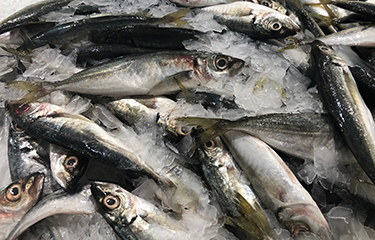Frustrated with the lack of action to establish sustainable management in the Northeast Atlantic pelagic fisheries, major brands are turning away from the region’s mackerel in favor of Chilean jack mackerel, according to the North Atlantic Pelagic Advocacy Group (NAPA).
In an open letter to ministers, calling for governments to fully support the drive for sustainable pelagic fisheries, the coalition of 50-plus businesses – with an EUR 800 million (USD 859 million) share of Northeast Atlantic pelagic seafood purchasing – warned that “the countdown is on” for coastal states to reach a quota sharing arrangement for the fisheries in line with the “clear” scientific advice.
NAPA told officials the lack of decisive action on the issues facing these fisheries is putting their fishing industries and fishing communities at risk.
“The unpalatable reality is that, in the absence of any resolution, global processing and retail businesses may have no option but to meet their pelagic sourcing requirements from other fisheries. This is not an outcome that NAPA members want, and we consider that the fishing industry deserves better,” the letter stated.
According to NAPA, some major retailers and manufacturers in Europe are starting to source Marine Stewardship Council (MSC) certified sustainable jack mackerel from Chile as an alternative to Northeast Atlantic mackerel, with the species now available on the shelves of Migros, Delhaize and Albert Heijn, and products soon to be launched by German seafood brand Followfood.
It advised that the 15 nations catching the fish in the South Pacific Ocean have been able to agree on a sustainable catch quota allocation in line with scientific advice.
The Chilean jack mackerel annual catch is currently at 600,000 metric tons (MT).
“Ultimately, we are seeking to ensure that your government is fully behind the drive for sustainable pelagic fisheries and that your position at the ongoing sharing discussions will testify to that commitment. We need to see sustainable fishing in the Northeast Atlantic,” NAPA wrote.
The letter explained the failure to agree a sustainable allocation of catch quotas by NEA coastal states has led to overfishing of the mackerel, Atlanto-Scandian herring, and blue whiting stocks, with the effort exceeding the International Council for the Exploration of the Sea (ICES) advice by 30 to 40 percent, and also leading to their Marine Stewardship Council (MSC) certification to be suspended.
NAPA further advised that the loss of the MSC eco-label across the three stocks was a major contributor to the 20 percent reduction in the eco-label’s global sales of fish in 2021-2022, as well as a 6 percent drop in the worldwide production of certified marine feed ingredients between 2020 and 2021.
Photo courtesy of phil_berry/Shutterstock







